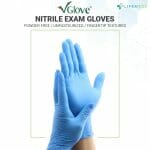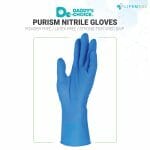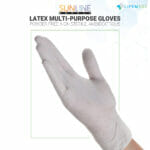What are Antimicrobial Face Masks?
Antimicrobial face masks are a type of personal protective equipment (PPE) designed to inhibit the growth and spread of microorganisms, such as bacteria, viruses, and fungi. These masks are treated with antimicrobial agents that work to reduce the risk of microbial contamination on the mask’s surface, providing an added layer of protection. Antimicrobial face masks are widely used in healthcare, public spaces, and industrial settings where there is a heightened risk of exposure to infectious agents. They offer dual protection by filtering airborne particles while also preventing the accumulation of harmful microbes on the mask itself.
Why are Antimicrobial Face Masks Important?
Antimicrobial face masks are important because they provide enhanced protection against infectious agents, particularly in environments where hygiene and infection control are critical. While standard face masks offer filtration against airborne particles and droplets, antimicrobial face masks go a step further by actively reducing the presence of microbes on the mask’s surface. This is especially beneficial in healthcare settings, where prolonged use of masks is necessary, and frequent touching of the mask can lead to contamination.
During pandemics or outbreaks, antimicrobial face masks offer an additional safeguard, as they help prevent the mask from becoming a breeding ground for harmful microorganisms. This can reduce the risk of self-contamination or transferring pathogens from the mask to other surfaces.
In industrial environments where workers are exposed to hazardous materials, dust, and biological contaminants, antimicrobial face masks provide an extra layer of defense, enhancing worker safety.
Key Features of Antimicrobial Face Masks
- Antimicrobial Treatment: These masks are treated with antimicrobial agents, such as silver, copper, or zinc, which inhibit the growth of bacteria and viruses on the mask’s surface.
- Filtration Efficiency: Antimicrobial face masks provide effective filtration against airborne particles, including dust, allergens, and infectious droplets.
- Long-Lasting Protection: The antimicrobial properties of these masks are designed to last through multiple uses or washes, making them a durable option for long-term protection.
- Comfort and Fit: These masks are made from lightweight, breathable materials and often feature adjustable ear loops or nose clips for a secure and comfortable fit.
Applications of Antimicrobial Face Masks in the PPE Industry
Antimicrobial face masks are commonly used in healthcare settings to protect both medical professionals and patients from infections. They are also used in public settings, particularly during pandemics, to offer an additional layer of protection against airborne pathogens.
In industrial environments, workers exposed to harmful particles or biological agents use antimicrobial face masks to reduce the risk of contamination and improve workplace safety. Additionally, these masks are used in food processing and pharmaceutical manufacturing to maintain sterile environments.
Conclusion
Antimicrobial face masks provide a higher level of protection by combining effective filtration with antimicrobial properties that prevent the growth of harmful microorganisms. These masks are essential in healthcare, public spaces, and industrial settings, offering durable, long-lasting protection against infections and contaminants. By reducing the risk of microbial contamination, antimicrobial face masks play a crucial role in maintaining hygiene and safety in environments where infection control is a priority.
« Back to Glossary Index

















